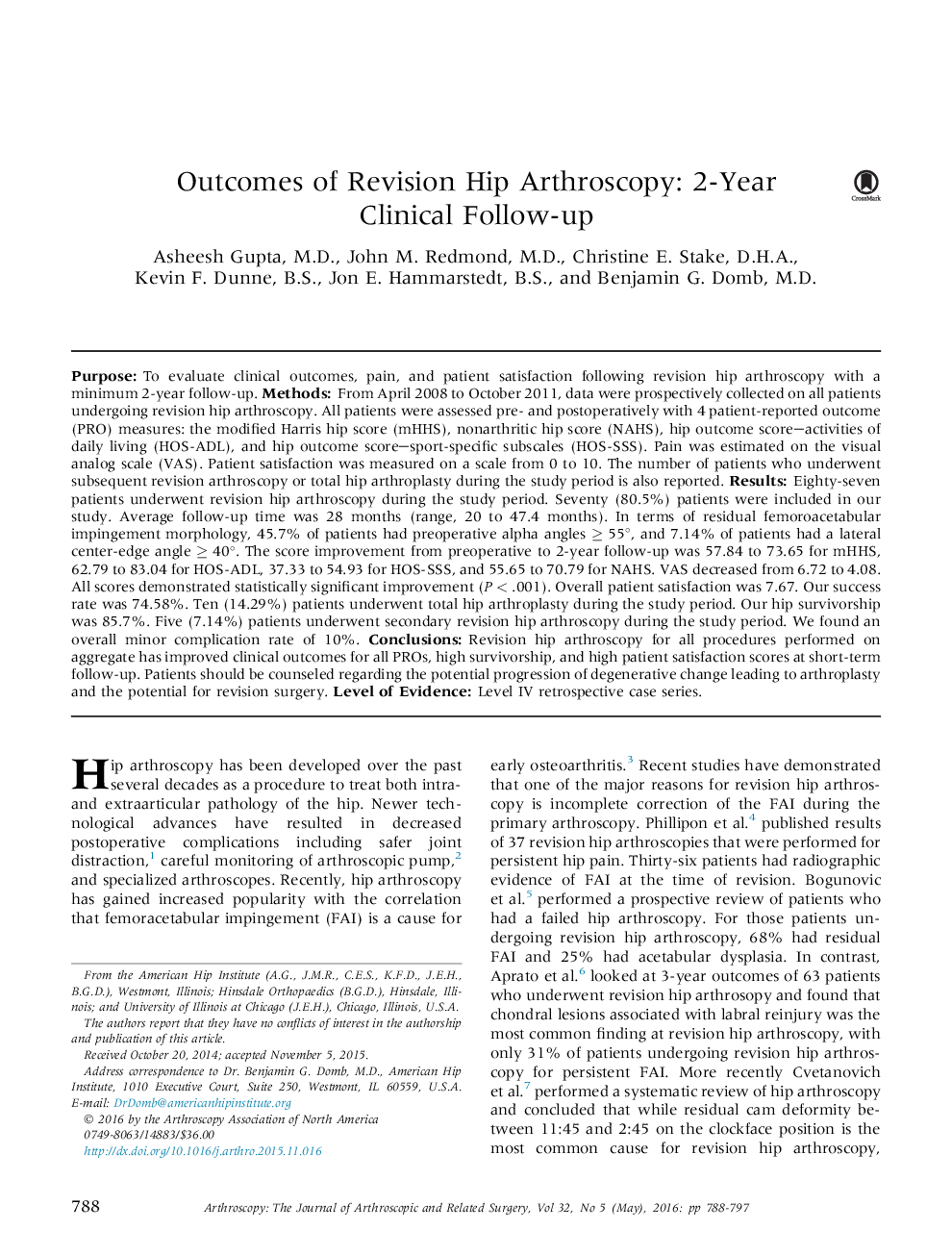| Article ID | Journal | Published Year | Pages | File Type |
|---|---|---|---|---|
| 4042043 | Arthroscopy: The Journal of Arthroscopic & Related Surgery | 2016 | 10 Pages |
PurposeTo evaluate clinical outcomes, pain, and patient satisfaction following revision hip arthroscopy with a minimum 2-year follow-up.MethodsFrom April 2008 to October 2011, data were prospectively collected on all patients undergoing revision hip arthroscopy. All patients were assessed pre- and postoperatively with 4 patient-reported outcome (PRO) measures: the modified Harris hip score (mHHS), nonarthritic hip score (NAHS), hip outcome score–activities of daily living (HOS-ADL), and hip outcome score–sport-specific subscales (HOS-SSS). Pain was estimated on the visual analog scale (VAS). Patient satisfaction was measured on a scale from 0 to 10. The number of patients who underwent subsequent revision arthroscopy or total hip arthroplasty during the study period is also reported.ResultsEighty-seven patients underwent revision hip arthroscopy during the study period. Seventy (80.5%) patients were included in our study. Average follow-up time was 28 months (range, 20 to 47.4 months). In terms of residual femoroacetabular impingement morphology, 45.7% of patients had preoperative alpha angles ≥ 55°, and 7.14% of patients had a lateral center-edge angle ≥ 40°. The score improvement from preoperative to 2-year follow-up was 57.84 to 73.65 for mHHS, 62.79 to 83.04 for HOS-ADL, 37.33 to 54.93 for HOS-SSS, and 55.65 to 70.79 for NAHS. VAS decreased from 6.72 to 4.08. All scores demonstrated statistically significant improvement (P < .001). Overall patient satisfaction was 7.67. Our success rate was 74.58%. Ten (14.29%) patients underwent total hip arthroplasty during the study period. Our hip survivorship was 85.7%. Five (7.14%) patients underwent secondary revision hip arthroscopy during the study period. We found an overall minor complication rate of 10%.ConclusionsRevision hip arthroscopy for all procedures performed on aggregate has improved clinical outcomes for all PROs, high survivorship, and high patient satisfaction scores at short-term follow-up. Patients should be counseled regarding the potential progression of degenerative change leading to arthroplasty and the potential for revision surgery.Level of EvidenceLevel IV retrospective case series.
